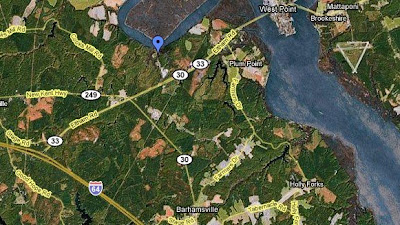It’s amazing what happens when you deprive a region like Hampton Roads of the easy solution — raising taxes — for reducing transportation congestion. People come up with some pretty creative ideas. Not all of them will prove viable, but some of them will. And none of them would have surfaced if the General Assembly and local politicos had been allowed to continue unchallenged their tax-and-spendthrift ways.
The latest case in point: New Kent County, which lies between Richmond and Hampton Roads, is studying the feasibility of building a cargo-transfer facility to take trucks off Interstate 64 and spur business development, reports the Daily Press.
The idea under study is to ferry cargo containers from the ports in Norfolk and Portsmouth through the Chesapeake Bay, under the Coleman Bridge and then up the Pamunkey River to the proposed port property. The enterprise would take trucks off the most congested and costly-to-expand stretches of Interstate 64 in Hampton Roads.
The privately owned site, called Parham Landing, is a largely vacant parcel on the south bank of the Pamunkey, about four miles from Interstate 64. The cost of the transfer facility is estimated to be $36 million to $53 million. It’s not clear at this stage whether private investors or a public entity would pay to build it. But one thing for sure would undermine the project: Opening up the spigots of taxpayer funding for Business As Usual transportation remedies.
Remember, traffic congestion creates business opportunities. The lure of profit calls forth creative ideas.
(Map credit: Jon Baliles. Blue marker shows location of Parham Landing. Click on image for larger, more legible version.)


Leave a Reply
You must be logged in to post a comment.